INTERNACIONAL
On Ukrainian Independence Day, over 100 POWs swapped with Russia
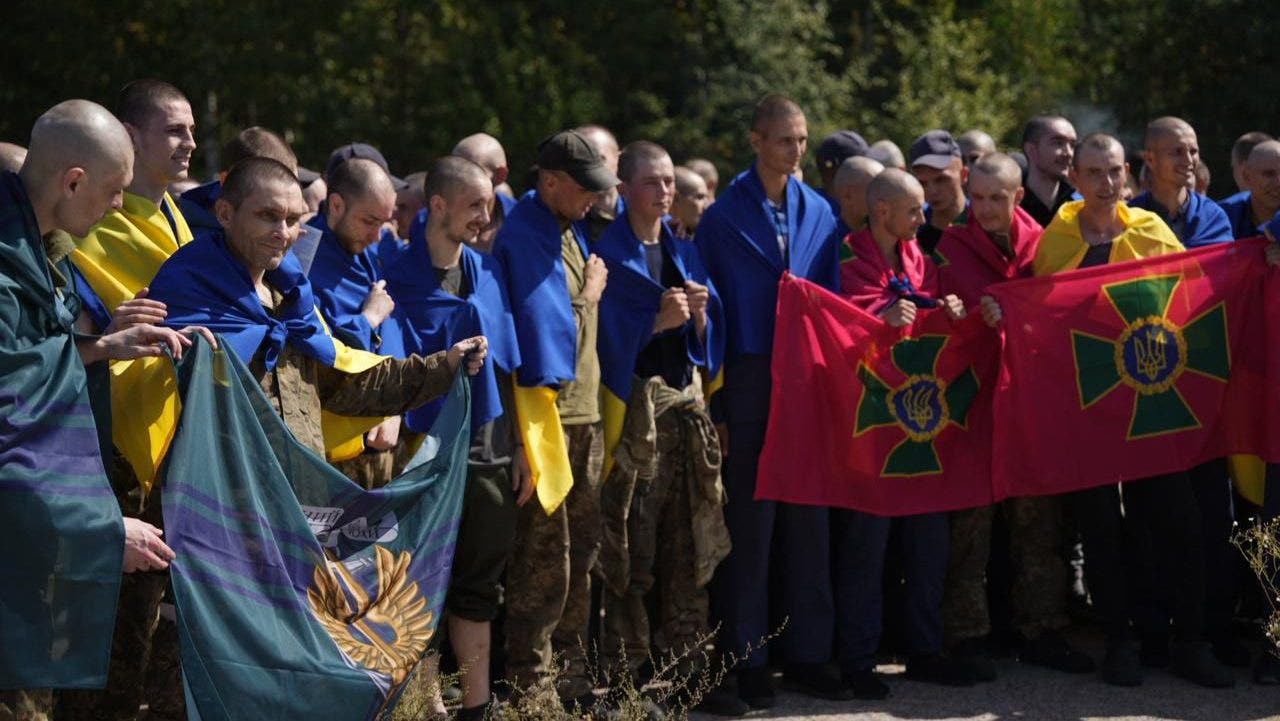
Ukraine exchanged over 100 individuals with Russia this week as the country celebrated its third Independence Day since the invasion began.
The two nations swapped an even number of prisoners — 115 soldiers for 115 soldiers — on Saturday, the 55th such exchange of the ongoing conflict.
«Another 115 of our defenders have returned home today. These are warriors of the National Guard, the Armed Forces, the Navy, and the State Border Guard Service,» Zelenskyy said in a statement on the exchange. «We remember everyone. We are searching for them and making every effort to bring them all back.»
RUSSIA LOOKS TO DOWNPLAY UKRAINE INVASION AS ‘NEW NORMAL’ WHILE PUTIN FAILS TO STOP WAR ON HOME TURF: REPORT
Ukrainian prisoners of war return home after various lengths of imprisonment in Russia. (Office of the Ukrainian President)
The agreement was struck via negotiations facilitated by the United Arab Emirates.
Zelenskyy praised those soldiers responsible for capturing Russian combatants, stating that such successes on the battlefield give the much smaller nation leverage in negotiations for their own men’s return.
«I am grateful to each unit that replenishes our exchange fund. This helps to advance the release of our military personnel and civilians from Russian captivity,» Zelenskyy said. «I thank our team and partners, the UAE, for bringing our people back home.»
UKRAINE TARGETS RUSSIAN BRIDGES IN MOVE AGAINST MOSCOW COUNTEROFFENSIVE IN KURSK
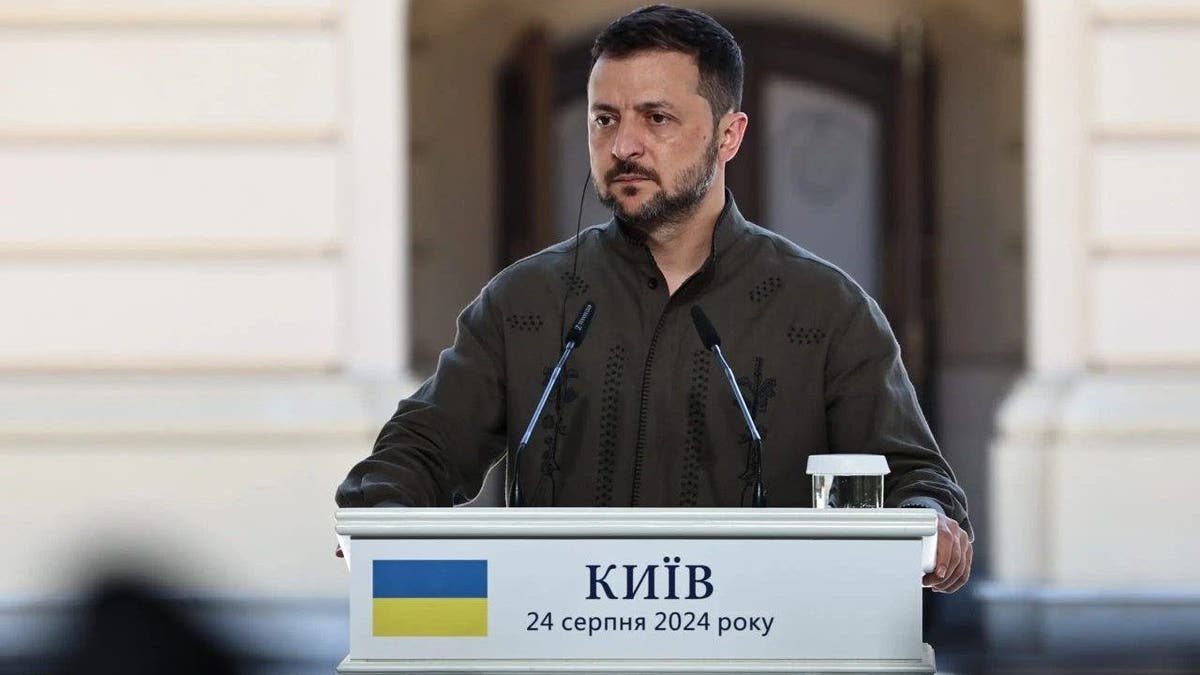
Volodymyr Zelenskyy, President of Ukraine, takes part in a joint briefing on the 33rd anniversary of the independence of Ukraine in Kyiv, Ukraine. On August 24, Ukraine celebrates its 1991 declaration of independence from the USSR. For security reasons, no large mass events were held in Kyiv on this day, except some solemn activities. (Yan Dobronosov/Global Images Ukraine via Getty Images)
Officials in the Kremlin are scrambling to downplay Ukraine’s invasion into the Kursk region as Russian President Vladimir Putin has failed for a second week to stop Kyiv’s advances on his home turf, according to a report by independent Russian news outlet Meduza.
The report, which first emerged last week, claimed that sources in the Kremlin have begun pushing government-funded media agencies to minimize the severity of the Ukrainian incursion and to start employing a propaganda campaign that encourages Russians to embrace the «new normal.»
CLICK HERE TO GET THE FOX NEWS APP

People walk among graves at the Field of Mars cemetery in Lviv to commemorate the fallen soldiers on the occasion of the Independence Day Of Ukraine, amid the Russian invasion of Ukraine. (IVAN STANISLAVSKY/AFP via Getty Images)
Fox News Digital could not independently verify the report, which comes as Ukraine continues to tout its success in capturing more than 780 square miles of Kursk, including the town of Sudhza, as well as nearly 100 Russian villages, according to Ukraine’s Commander-in-Chief Oleksandr Syrskyi on Tuesday.
Fox News Digital’s Caitlin McFall contributed to this report.
INTERNACIONAL
China opts out of international blueprint to stop AI race in weapons development

China this week chose not to sign onto an international «blueprint» agreed to by some 60 nations, including the U.S., that looked to establish guardrails when employing artificial intelligence (AI) for military use.
More than 90 nations attended the Responsible Artificial Intelligence in the Military Domain (REAIM) summit hosted in South Korea on Monday and Tuesday, though roughly a third of the attendees did not support the nonbinding proposal.
AI expert Arthur Herman, senior fellow and director of the Quantum Alliance Initiative with the Hudson Institute, told Fox News Digital that the fact some 30 nations opted out of this important development in the race to develop AI is not necessarily cause for concern, though in Beijing’s case it is likely because of its general opposition to signing multilateral agreements.
Participants are shown prior to the closing session of the REAIM summit in Seoul, South Korea, on Sept. 10, 2024. (JUNG YEON-JE/AFP via Getty Images)
MASTERING ‘THE ART OF BRAINWASHING,’ CHINA INTENSIFIES AI CENSORSHIP
«What it boils down to … is China is always wary of any kind of international agreement in which it has not been the architect or involved in creating and organizing how that agreement is going to be shaped and implemented,» he said. «I think the Chinese see all of these efforts, all of these multilateral endeavors, as ways in which to try and constrain and limit China’s ability to use AI to enhance its military edge.»
Herman explained that the summit, and the blueprint agreed to by some five dozen nations, is an attempt to safeguard the expanding technology surrounding AI by ensuring there is always «human control» over the systems in place, particularly as it relates to military and defense matters.
«The algorithms that drive defense systems and weapons systems depend a lot on how fast they can go,» he said. «[They] move quickly to gather information and data that you then can speed back to command and control so they can then make the decision.
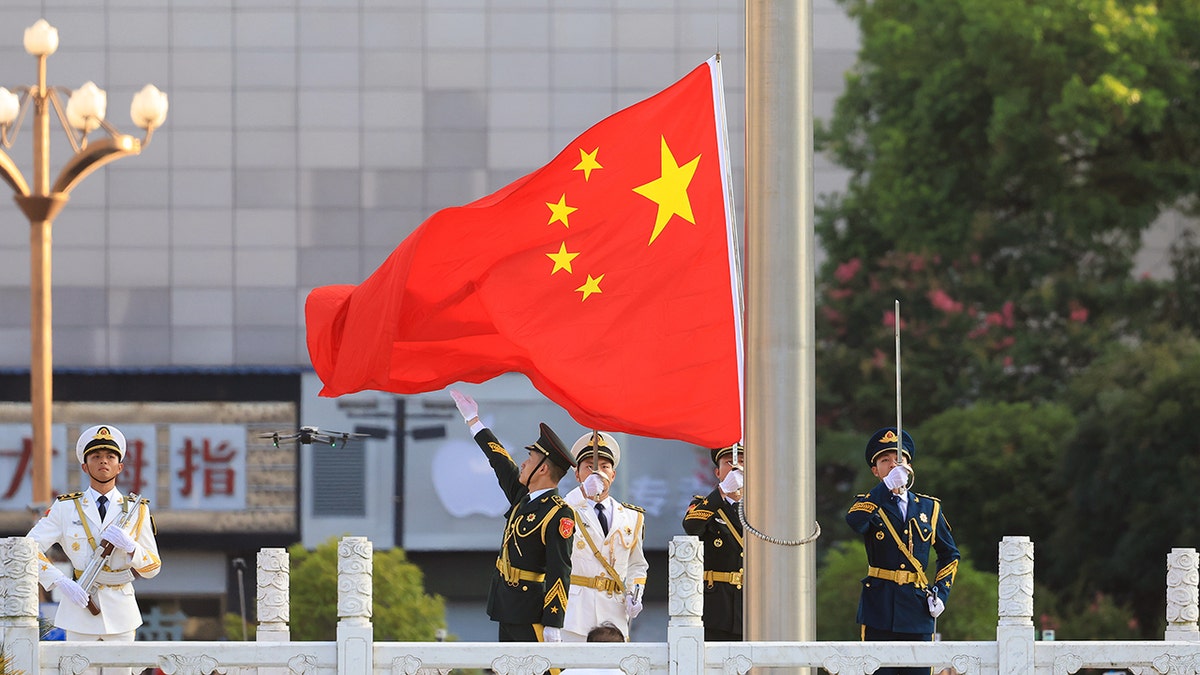
The Guard of Honor of the Chinese People’s Liberation Army performs a flag-raising ceremony at Bayi Square to celebrate the 97th anniversary of China’s Army Day on Aug. 1, 2024, in Nanchang. (Ma Yue/VCG via Getty Images)
«The speed with which AI moves … that’s hugely important on the battlefield,» he added. «If the decision that the AI-driven system is making involves taking a human life, then you want it to be one in which it’s a human being that makes the final call about a decision of that sort.»
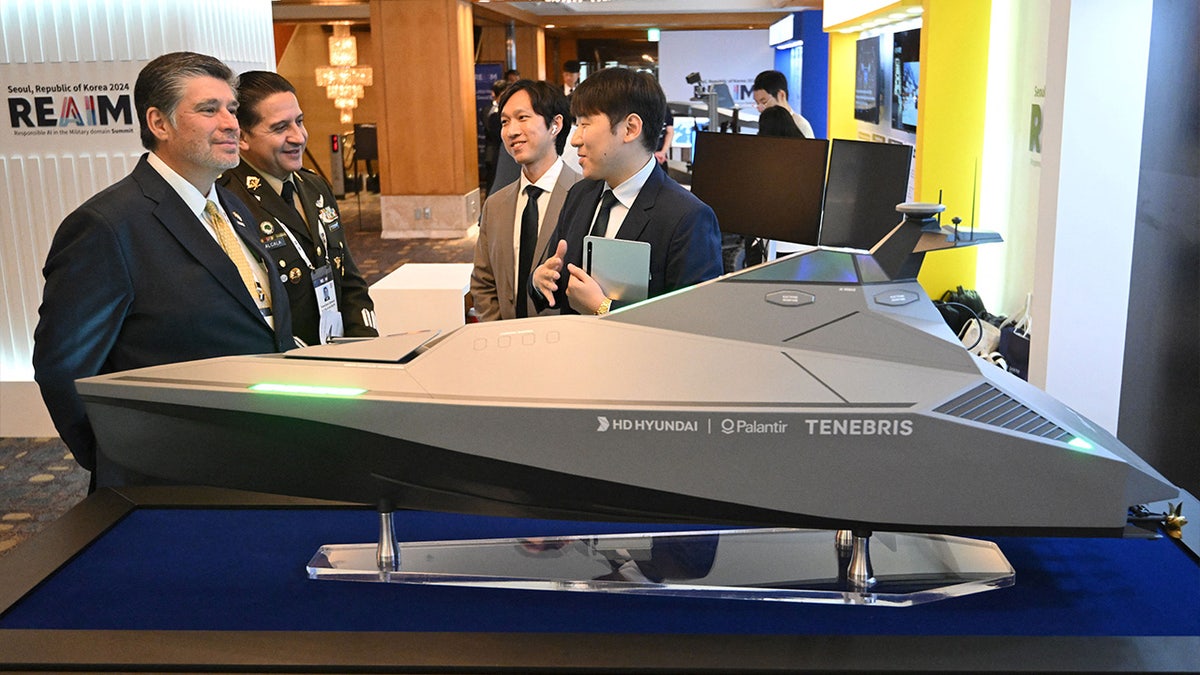
Participants are shown with the Tenebris, a medium-size unmanned surface vessel concept, on display at the REAIM summit in Seoul, South Korea, on Sept. 10, 2024. (JUNG YEON-JE/AFP via Getty Images)
Nations leading in AI development, like the U.S., have said maintaining a human element in serious battlefield decisions is hugely important to avoid mistaken casualties and prevent a machine-driven conflict.
ARMY PUSHES 2 NEW STRATEGIES TO SAFEGUARD TROOPS UNDER 500-DAY AI IMPLEMENTATION PLAN
The summit, which was co-hosted by the Netherlands, Singapore, Kenya and the United Kingdom, was the second of its kind after more than 60 nations attended the first meeting last year held in the Dutch capital.
It remains unclear why China, along with some 30 other countries, opted not to agree to the building blocks that look to set up AI safeguards, particularly after Beijing backed a similar «call to action» during the summit last year.
When pressed for details of the summit during a Wednesday press conference, Chinese Foreign Ministry spokesperson Mao Ning said that upon invitation, China sent a delegation to the summit where it «elaborated on China’s principles of AI governance.»
Mao pointed to the «Global Initiative for AI Governance» put forward by Chinese President Xi Jinping in October that she said «gives a systemic view on China’s governance propositions.»
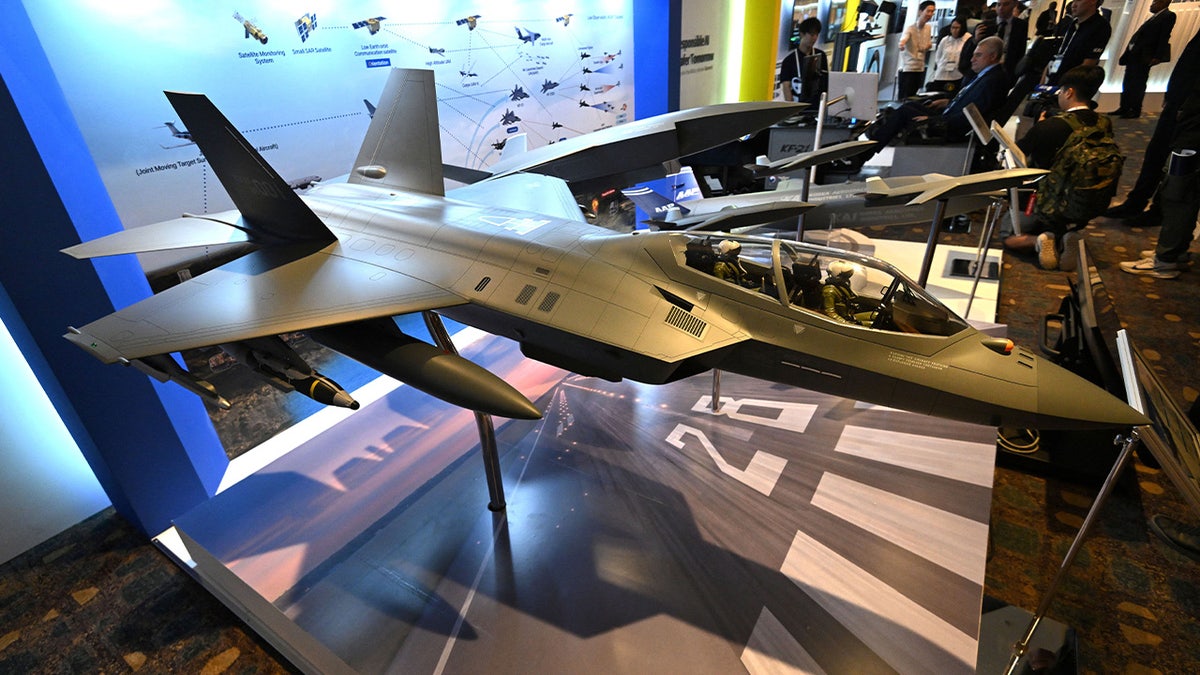
Participants look at a miniature version of the KF-21 fighter jet on display at the REAIM summit in Seoul, South Korea, on Sept. 10, 2024. (JUNG YEON-JE/AFP via Getty Images)
The spokesperson did not say why China did not back the nonbinding blueprint introduced during the REAIM summit this week but added that «China will remain open and constructive in working with other parties and deliver more tangibly for humanity through AI development.»
CLICK HERE TO GET THE FOX NEWS APP
Herman warned that while nations like the U.S. and its allies will look to establish multilateral agreements for safeguarding AI practices in military use, they are unlikely to do much in the way of deterring adversarial nations like China, Russia and Iran from developing malign technologies.
«When you’re talking about nuclear proliferation or missile technology, the best restraint is deterrence,» the AI expert explained. «You force those who are determined to push ahead with the use of AI – even to the point of basically using AI as kind of [a] automatic kill mechanism, because they see it in their interest to do so – the way in which you constrain them is by making it clear, if you develop weapons like that, we can use them against you in the same way.
«You don’t count on their sense of altruism or high ethical standards to restrain them, that’s not how that works,» Herman added.
Reuters contributed to this report.
-
POLITICA3 días ago
Aerolíneas Argentinas inicia acciones legales contra los gremios y busca echar a Pablo Biró del directorio de la empresa
-
POLITICA2 días ago
Javier Milei celebró el apoyo al veto a la reforma jubilatoria: “Le pusieron un freno a los degenerados fiscales”
-
POLITICA19 horas ago
«Si quieren expulsarnos, que lo hagan ya»: uno de los diputados que cambió su voto calentó la interna radical y contó qué les dijo Milei
-
INTERNACIONAL2 días ago
«Tercera Guerra Mundial», «Venezuela con esteroides» y «Nos vendió a China», las frases más picantes del debate entre Kamala Harris y Donald Trump
-
CHIMENTOS10 horas ago
Alarma el estado de Jorge Lanata tras su traslado: «Estado vegetativo»
-
POLITICA11 horas ago
Un dirigente sindical habló de “reventar la Plaza de Mayo” si Javier Milei veta el presupuesto universitario



























